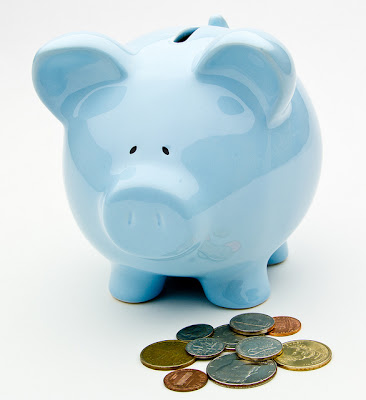This is part two of Personal Finance series where I share guides to get you started on personal finance. If you haven't, read Day 1: Setting Financial Goals and do the task in that post before proceeding with the post below.
Taking Stock
One time, I got a call from a friend who was visiting Makati
for the first time.
He called with a panic tone on his voice “Ton, I am lost. I need to be at this building by 11am for
an important meeting and I don’t know if I will reach it in time”
“Where are you?” I responded
"I don't know" he replies. "That's why I called you. I am lost. I don't know where I am. You have to help me. You are familiar with this place than I am"
On my mind I was thinking, this guy is being smarty pants.
Why should I help him with that sarcastic response?
Anyway, I kept my cool and answered “I cannot help me if
you don’t tell me where exactly you are now. What do you see? What are the stores,
buildings or any landmark around you?
He responded and with the descriptions he told me, I was
able to guide him from Point A to Point B.
The same concept goes for personal finance. If we have identified where we want to go after setting our financial goals, we also need to know where we stand. If you have goals and plans, know where you are currently and plan how to reach that goal and plan based on where you stand.
How to know your Net Worth
Task:
List down all your assets and liabilities to know your
net worth.
- List all your assets
- List all your liabilities
- Compute your networth = (Assets minus Liabilities)
Grab your pen and paper or open an excel or word document.
Here is a copy of a workbook you can print and download if needed.
List down
all your savings account, your cash, and all the investment that you have.
Those are what you call assets. Asset
are future sources of income or money.
No. Please don’t include that mighty iphone 5 that you are
holding. Or that expensive bags that you own.
Just limit that assets to your cash, savings account,
current account, mutual fund and investments. I do not want to include your
gadgets or those expensive bags because they are rarely source of income.
If you insists including them, then tell me that you don’t
really need it on a day to day basis and if I ask you to sell it now you can
and you will. If you cannot say yes, do not include them.
Next are liabilities,
Grab your credit card statement and include it under the
liabiliies. If you own someone money, you should include it too. If you have
PAG-IBIG loans, company loans, SSS loans and all loans, you should include them
under the liabilities.
Now that you have both assets and liabilities, add them up.
Add the value of your assets separately and then add up the value of your
liabilities separately. Do you like what you are seeing?
For the final step, do this “Assets – Liabilities = Net
Worth”.
Say if you assets totaled to P100,000 and your liabilities
added up to P20,000 then your net worth is P80,000.
Purpose of Knowing Your Net Worth
So why do we need to know the net worth? We need it because
it represents our financial value as of now. If you see a positive number it is
a good sign. If is a large amount, then I say you have a good net worth. Is
there an ideal number? I have not seen anything published but I will like to
share what I got from “The Millionaire Next Door”.
What's the ideal net worth?
The book offered the below formula for calculating what your
net worth should be
Target Net Worth = Age X Annual PreTax Income / 10
Now, if pretax income is confusing to you, then just use
your annual salary or your annual net income. I don’t want to discuss on this
post what’s a pre tax income is but to simplify it just you your annual income
whatever it is.
Example? For a 23 year old single guy
who earns P240,000 a year, his target net worth should be
Target Net Worth = 23 X P240,000 / 10 = P552,000
Do I use this formula? Actually no. Why? Because I am not
interested in a dictated formula from a book but I rather have a networth that
matches my financial goals.
And setting financial goals is the third topic for this
five day personal finance.
So that’s it. Very easy right?
 |
| Image from www.seniorliving.org |
Tasks Summary
1. List
down your assets
2. List
down your liabilities
3. Compute
for your net worth (Formula: Assets – Liabilities = Net Worth)
Bonus Task
Now that you know your net worth, how does that make you
feel? Are you happy about it? Are you glad? Did it make you sad? Whatever your
reactions are write them down.
Topic for tomorrow is your Income and Expenses
If it's important to you, you will find a way. If it's not important to you, you will find an excuse












